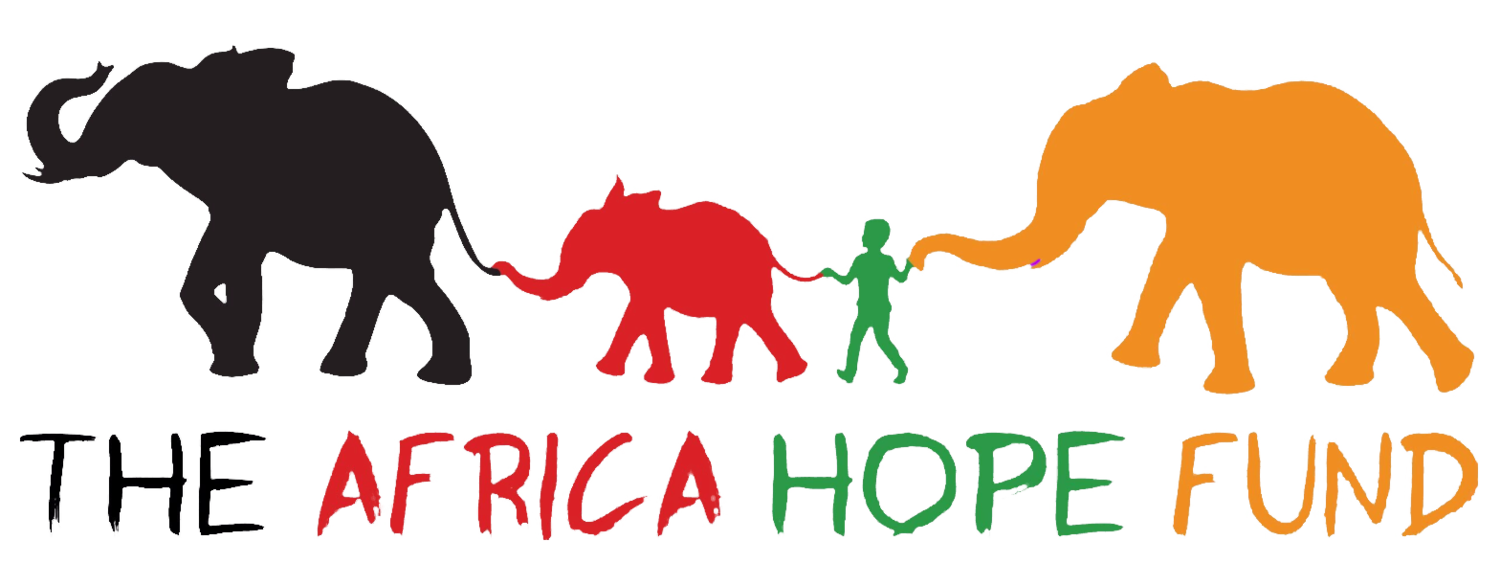Volunteering in the Luangwa Valley
Volunteering With Africa Hope Fund In Zambia:
Elephants, Hippos And More In The Luangwa Valley
My daughter Lindsey and I stayed at Marula Lodge in Mfuwe Village, Zambia, in July when we volunteered to tutor students in reading at Uyoba School. The lodge is named for the Marula tree, which is indigenous to the Luangwa Valley woodlands, where giraffes, zebras, and antelope graze, and where for centuries plant-eating, native rhinoceroses thrived before poaching made them extinct. Every night elephants and hippos come through the grounds to forage at Marula. Elephants also eat the bark, branches, and fruits of the marula tree, yanking off huge branches. Sometimes the grounds are a bit of a mess in the morning because the elephants took a liking to trees intended to be attractive landscaping. But elephants also disperse marula seeds in their dung, which helps with biodiversity. Mature marula trees are about sixty feet tall, and their fruits have a light-yellow skin with succulent white tart-tasting flesh. They contain about eight times the amount of vitamin C found in an orange and are used to make a liqueur called Amarula. Amarula liqueur is sold in the United States and tastes very much like Bailey’s Irish Cream.
The South Luangwa National Park, where we go on safari rides when we’re not volunteering, sits across the Luangwa River from Marula. At sunset, we sat in comfortable chairs overlooking the river. We watched a procession of elephants make their way across for a night’s foraging as the sun dropped down into a fier sky, and hippos rested in the river below. Marula Lodge grounds have metal-roofed bungalows with separate units in each small stucco building. The dining/reception area is a round stucco building with open sides, rafters made of indigenous wood, and a thatched roof called a rondavel. Marula’s swimming pool is guarded by an electric wire fence to keep elephants from stumbling in. One long building hidden behind reed fencing off to the side serves as a kitchen and laundry facility.
Conversations at Marula were always lively, and despite coming from different countries, we all wanted to help people in the Luangwa Valley and explore its remote beauty. We met a couple from Canada who paid their airfare and living expenses to paint classrooms at Uyoba School. A group of quilters came with fabric and easy projects to teach women who were HIV positive how to sew gifts they could sell to tourists. Their husbands brought small tools for men who craft art from metal and wire and helped them with production ideas. Everyone wanted to share their travel plans or volunteer projects. We met students, college professors, writers, and retirees and looked forward to evenings at Marula because we compared notes when we shared tables at mealtime and cocktail hour.
Generosity like this made me hopeful: humanity was showing its heart. There were no cultural boundaries, just people working together to make a better life for others. Our host, Jenny Waterhouse, is an integral partner at Uyoba School, where Lindsey and I volunteered. When we’re not there, it’s good to have involved ears and eyes at the school, and the school is Jenny’s passion. She was thrilled to have us and shared loads of books and sets of donated learning materials like puzzles. We drank gin and tonics at the end of each day, ate delicious meals in their open-sided dining room, and slept in a lovely little two-bed stucco chalet with an occasional gecko dropping by to dine on insects. Elephants passed nearby as we slept, but as long as we didn’t keep food on our shelf, we were safe at night. One guest made that mistake, and an elephant crashed through his door looking for food. We had a hot shower, beds with mosquito netting, a big electric fan to use at night if it got stuffy, and hippos came past our bedroom window in the middle of the night to graze on the lawn.
Africa Hope Fund’s volunteer reading program is on hold this year because of the Covid virus, although it looks like that part of Zambia is so remote that once they shut down the safari industry, the virus wasn’t as bad as it is here. We will take another group of volunteers to Mfuwe Village in 2021 when business resumes there. If you want to join us, you’ll treasure your experience and make a big difference in young people’s lives.
For more information about volunteer trips visit Africa Hope Fund. Zicomo (Nyanja, one Zambian language for “thank you”).
Written by AHF Emeritus Board Member, Patricia Cole
An Africa Hope Fund board member for 7 years, Pat is a writer and a conservation activist. After traveling to Zambia, she became dedicated to helping Africa Hope Fund provide education to the next generation of Africans and ensure their future by protecting wildlife. Find Patricia on Facebook and Twitter, or on her websites www.writepatwrite.com and www.patmcole.com.
Enjoy reading this Elephant Blog post? Help support our future posts by becoming a Patreon supporter!

